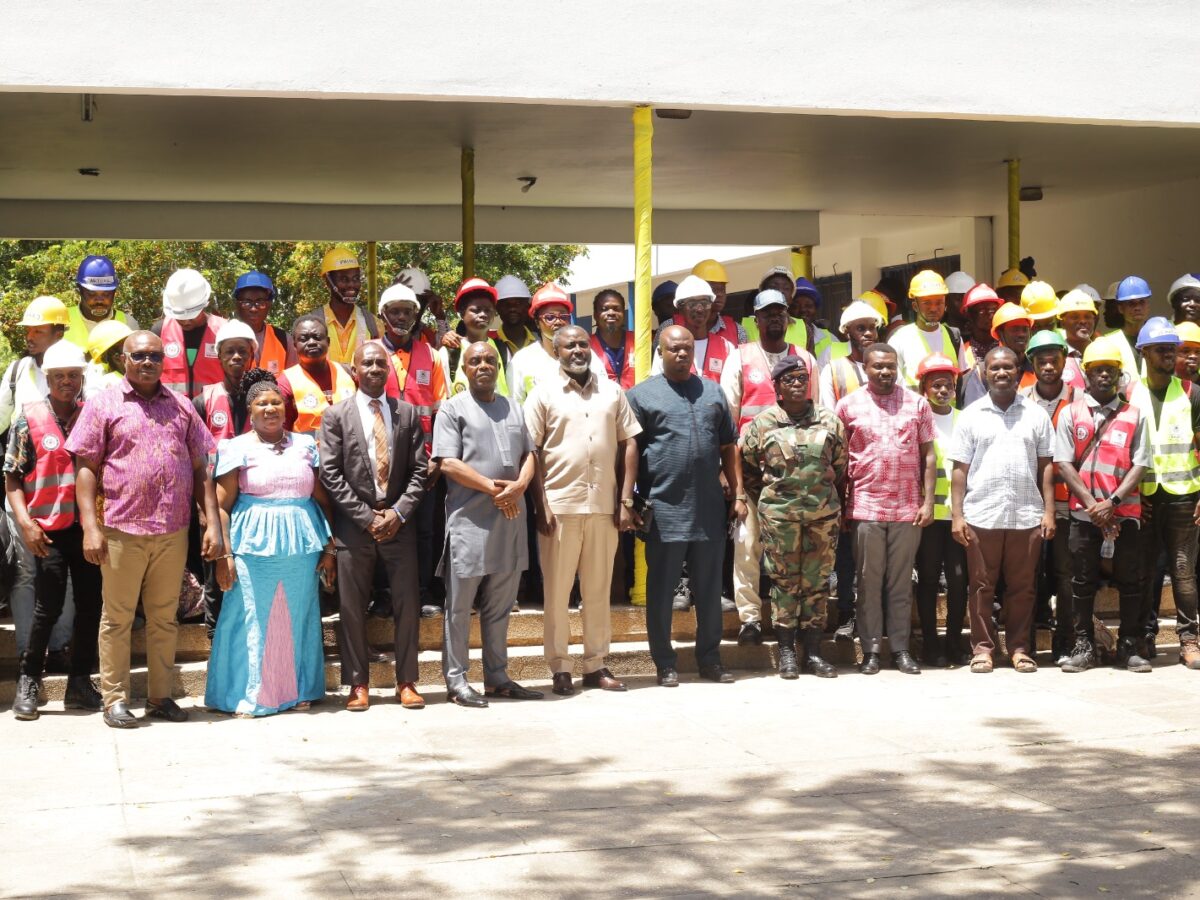By Stanley Kwabla Arku
The Regional Maritime University (RMU), in partnership with the National Association of Heavy-Duty Equipment Operators Ghana (NAHEOG), has graduated its seventh cohort of Mobile Crane and Forklift trainees, reinforcing its commitment to job creation and industrial transformation through technical skills training.
Held under the themed “Skilled Labour for Accelerated Industrialization.” It drew participation from government officials, industry stakeholders, families, and students.

In his address, Acting Vice Chancellor of RMU, Professor Kwesi Atta, praised the graduates for their perseverance and focus. He highlighted the programme’s impact since its inception in October 2022, noting that it had equipped hundreds of young Ghanaians with practical competencies in crane and forklift operation, skills that are in high demand across ports, construction sites, warehouses, and industrial zones.
“Without skilled labour, industrial ambitions remain mere ideas. But with a trained and competent workforce, nations move from vision to action,” Professor Atta said.
He also announced that the University, in response to industry demand, would soon introduce three new technical programmes aimed at further aligning its curriculum with national and international workforce needs.

Representing the Chief Executive Officer of the National Youth Authority (NYA), Deputy Chief Executive Officer (Operations and Programs), Alhaji Inusah Mahama, delivered a passionate address on the importance of skills training in addressing youth unemployment.
“We at the National Youth Authority believe that empowering young people with practical skills is the surest path to sustainable livelihoods,” Alhaji Mahama stated. “This partnership between RMU and NAHEOG is a shining example of how institutions can come together to create real opportunities for the youth.”
He pointed to government initiatives such as the National Apprenticeship Programme as critical interventions and urged both the private and public sectors to strengthen partnerships that support technical training.

“We can no longer afford to treat technical training as a fallback option,” he said. “It is, in fact, the frontline of Ghana’s industrial transformation. Forklift and crane operators are not just moving machines, they are moving Ghana forward.”
He encouraged graduates to take pride in their new roles and remain committed to professionalism and excellence.
“Carry your certificates with pride, but let your work ethic speak louder than your papers. The industry is watching, and so is the nation.”
President of NAHEOG, Mr. Dominic Kofi Eyia, also addressed the gathering, applauding the graduates for their hard work and reminding them of their critical role in the country’s development.
“Today you are not just certified operators. You are essential contributors to the machinery of progress,” Mr. Eyia said. “Your skills move goods, materials, and economies. You ensure that development is not just planned but executed.”
He called on government ministries, development agencies, and the private sector to increase investment in technical education and support training institutions like RMU.
“Supporting training centres like this one is not charity, it is a strategy for national growth, job creation, and sustainable development,” he added.
The Mobile Crane and Forklift Operation programme runs over a span of 4 to 8 weeks, combining hands-on equipment handling with safety protocols and operational efficiency. The certification is recognized across West and Central Africa and is designed to provide immediate employment pathways in both the public and private sectors.


